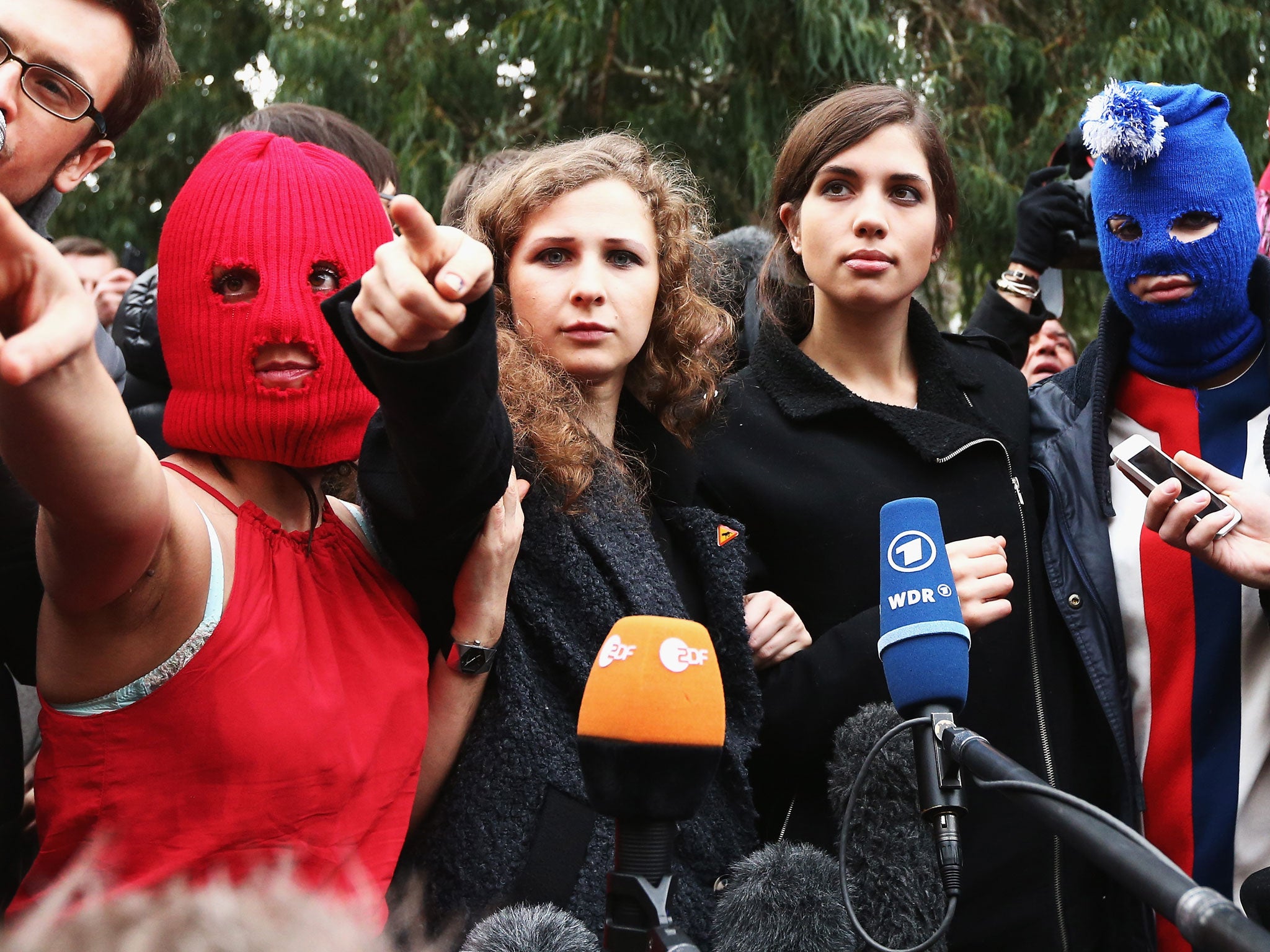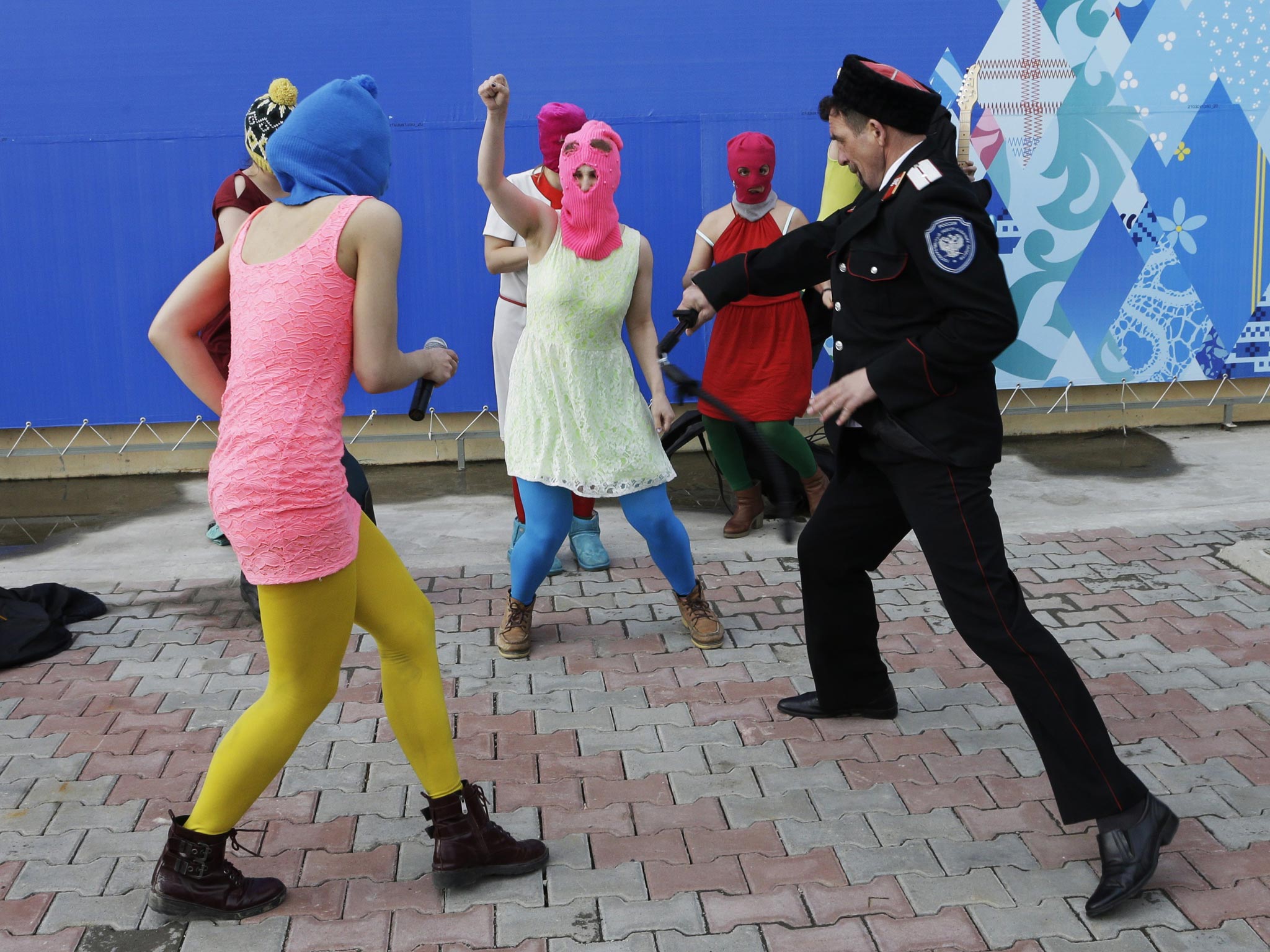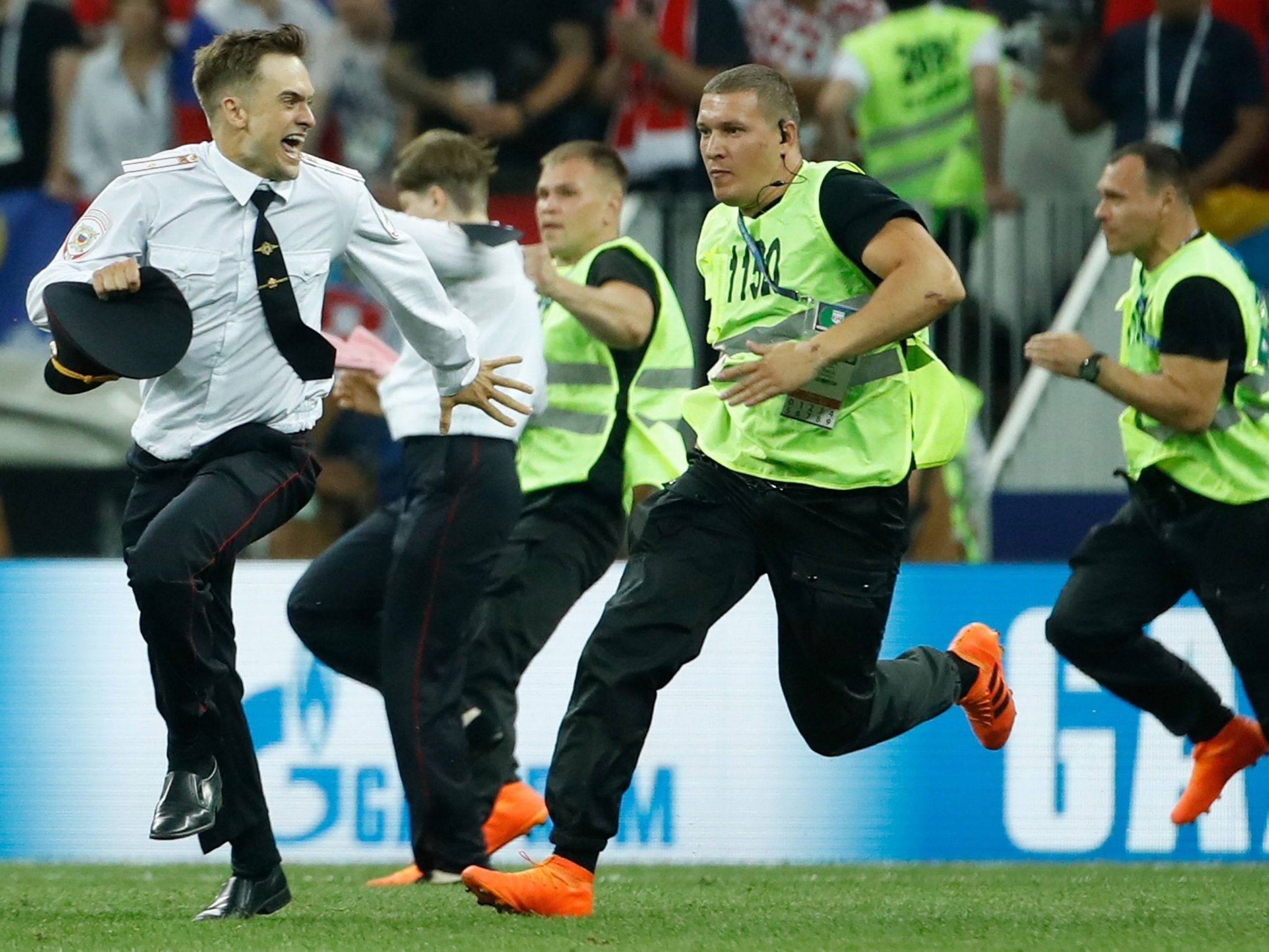Pussy Riot: Who is Pyotr Verzilov and how is he involved with the anti-Putin punk protest collective?
Feminist guerrilla art group known for daring demonstrations against Kremlin oppression

Doctors treating Russian political activist Pyotr Verzilov have said they think it “highly plausible” he has been poisoned.
Mr Verzilov was taken ill following a court hearing in Moscow on 12 September over his part in a pitch invasion during the 2018 FIFA World Cup Final on 15 July.
The patient, said by doctors Germany to be out of danger, was demonstrating against Vladimir Putin’s administration with fellow members of Pussy Riot, the feminist punk band and protest collective who have made headlines around the world since their founding in 2011.
The group – known for their distinctive uniform of neon-coloured balaclavas, short dresses and tights – emerged from the anarchist performance art troupe Voina. It is known for provocative installations calling out social hypocrisy, most famously a piece from February 2008 in which couples had sex in front of shocked patrons of the Timiryazev State Biology Museum in Moscow.
Operational between 2007 and 2009, the group included Mr Verzilov and his now estranged wife Nadezhda Tolokonnikova, who went on to form Pussy Riot after splitting from Voina in acrimonious circumstances. Members had profoundly disagreed about how best to bring political activism to the national stage.
Forming a punk band with friends Maria Alyokhina, Yekaterina Samutsevich and others, the group took a revolving door approach to membership.
They were inspired by original 1977 British groups like Cockney Rejects and Sham 69 as well as Bikini Kill and the American riot grrrl bands of the early 1990s.
Staging guerrilla situationist performances in public places to embarrass Mr Putin, Pussy Riot stood up for women’s rights and the LGBT+ community and against Kremlin cronyism, performing songs with titles like “Kill the Sexist” and “Putin Has Pissed Himself” in Red Square and the city’s Metro stations.
Protected to a degree by the anonymity conferred by their masks and use of aliases, matters came to a head on 21 February 2012 when five members of the group attempted to play a song entitled “Mother of God, Chase Putin Away” in Moscow’s Cathedral of Christ the Saviour, a show quickly broken up by security forces.
On 3 March, Ms Tolokonnikova and Ms Alyokhina were arrested and charged with hooliganism, with Ms Samutsevich joining them behind bars two weeks later. The two others present that day are thought to have fled Russia, fearing prosecution.


Denied bail and held in custody until July when their trial began, all three were quickly found guilty of hooliganism motivated by religious hatred and sentenced to two years in prison.
Ms Samutsevich was freed on appeal while her bandmates served their time in Mordavia and Perm Oblast.
Their plight reported around the world, was aided by Mike Lerner and Maxim Pozdorovkin’s film Pussy Riot: A Punk Prayer (2013), which documented their time at the Tagansky District Court.
Undeterred by their ordeal, which many observers felt was an excessive demonstration of might by the Kremlin to silence a prominent critical voice, Pussy Riot have continued in the same vein ever since.

They again made headlines at the Sochi Winter Olympics in February 2014 when they were savagely beaten with a whip by a uniformed Cossack as they attempted to sing a sarcastic track: “Putin Will Teach You to Love the Motherland”. They were attacked again a month later in Nizhny Novogrod by self-styled patriots, who doused them in a toxic green dye while they demonstrated for prison reform.
Their pitch invasion, dressed as policemen, at the World Cup Final was intended to again humiliate President Putin at a moment when the eyes of the world were on Russia.
It was also a pointed attack on the international community for its tacit acceptance of Russian injustices.
The gesture drew mixed reactions from the players: Croatia’s Dejan Lovren shoved Mr Verzilov to the ground while Kylian Mbappe of France cheerily high-fived one of the girls.
Off the field, this astonishing act of daring appears to have been a provocation too far.
In the same year in which Sergei and Yulia Skripal were poisoned with the deadly nerve agent novichok on British soil, apparently by Russian hitmen posing as tourists en route to Stonehenge, Mr Verzilov’s case looks ominously similar.
Pussy Riot’s acts of subversion are deadly serious and amount to much more than Instagram-friendly political poses and the speed with which the state moves to shut down their actions attests to the severity of the Kremlin’s opposition.
Join our commenting forum
Join thought-provoking conversations, follow other Independent readers and see their replies
Comments